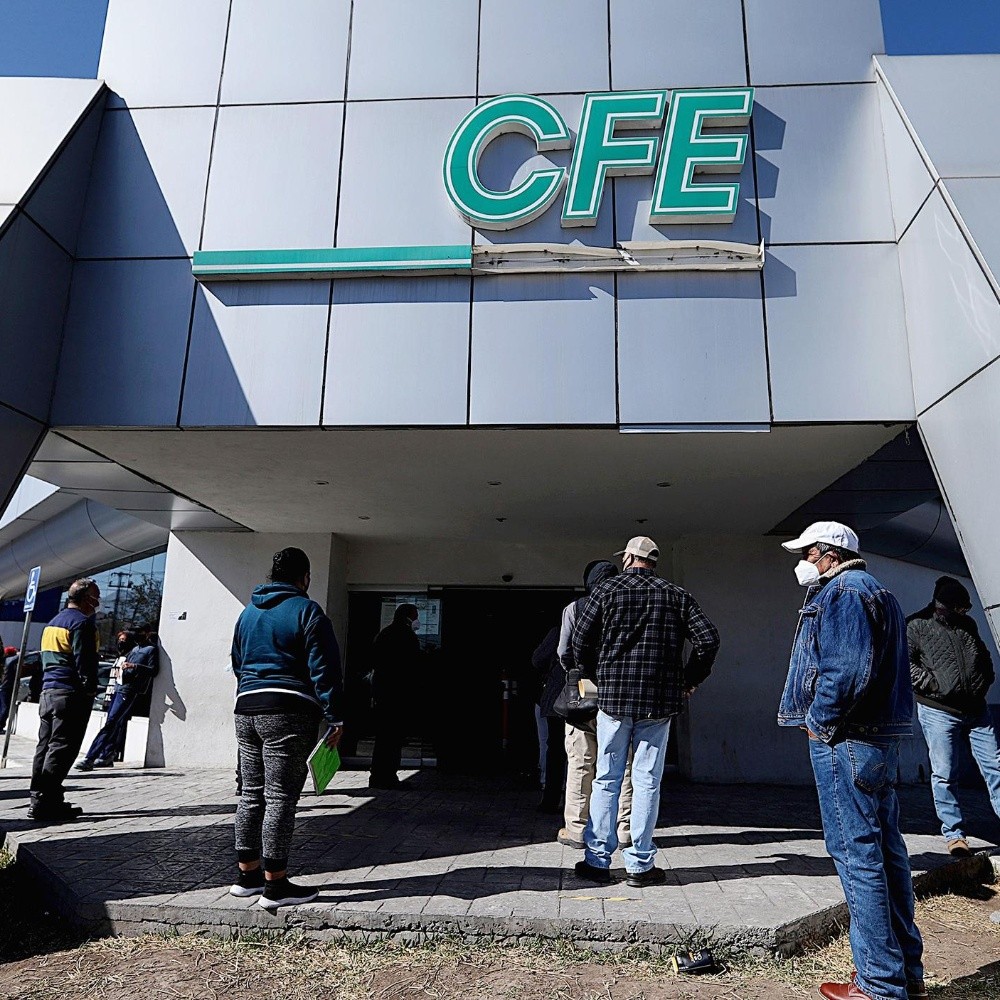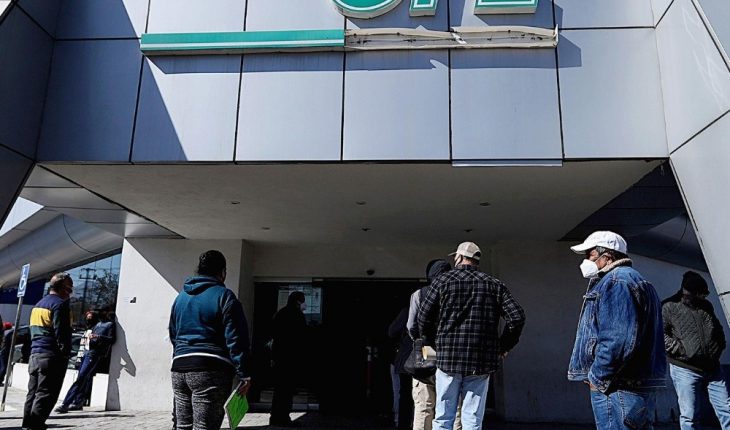
Culiacán, Sinaloa.- Three years after the government of Andrés Manuel López Obrador, the so-called Fourth Transformation seeks to impact the country’s electricity. To achieve this, AMLO proposed a reform of the electricity industry, which it has openly said, is intended for the State to control the sector and somehow reduce the opportunity for private ones, including renewable energy producers. However, there are a number of factors that would not make this decision as feasible, such as that which would raise cfE costs on basic energy services for the end consumer, i.e. citizens.
Stay informed about what matters most to you
Get the most relevant news of the day in your e-mail
Thank you for subscribing!
Check your inbox to confirm your email and start getting the latest news
Take advantage and take the next step
Get our news alerts so you don’t miss anything
Receive notifications
Not bad! You’ve subscribed to notifications
Set up and choose your preferences
Set up notifications
Enter your e-mail
Subscribe
Subscribing involves accepting the terms and conditions
Not bad! You’ve subscribed to notifications
Set up and choose your preferences
Some specialists also consider this law unconstitutional and would violate international agreements, such as those related to environmental care. Read more: “There is a game of the country’s destiny”: Ricardo Monreal on the elections of June 6That the reform was approved by the majority of Congress, which is Morena in early March, until today it remains frozen in the face of private protections, accusations and public indications.
López Obrador has already warned that he will ask to reform the Constitution if the judges or the Supreme Court of Justice of the Nation (SCJN) declare their new legislation unconstitutional. Changes that weren’t needed
But did Mexico need a new reform of the electricity industry? For Oscar Ocampo, energy coordinator at the Mexican Institute for Competitiveness, no. In interview with DEBATE, he noted that this reform makes no economic or environmental sense, besides that it will give more expensive and dirtier electricity generation.” This reform is not going to strengthen the CFE, but quite the opposite, because it is forcing it to buy more expensive energy, it is forcing it to invest scarce resources in an area where it loses money, CFE loses resources in electricity generation, private ones are much more efficient in the power generation part,” he said. In turn, he noted that this will also distract the CFE from investing in areas where it does generate resources such as fuel marketing or the pipeline network.” CFE is a very good business that it has there (gas pipelines) and right now all this reform is going to distract the CFE’s priorities towards concentrating on being, as Manuel Barrios once called it, an electricity factory, rather than being a modern energy company,” he said. Oscar Ocampo noted that, unlike hydrocarbons, which is a scarce sector as a non-renewable resource, electricity is a technological process, it is not a resource, but the current Administration conceives electricity and hydrocarbons or fossil fuels as equal.
“Hence there is this view that the State has to maintain the state’s rectory on the energy resources of this country and not, it does not make economic rational, but it is an ideological position, which does not surprise us either,” he said. This, noting that the President, in 2006, 2012 and 2018, already had the same opinion on the subject, he stressed. Protections
José Juan González Márquez, professor-researcher in the Law Department of the Azcapotzalco Unit of the Metropolitan Autonomous University, explained that the Constitution was reformed in 2013 in the electrical energy part. What it established was to eliminate CFE’s monopoly on all the activities of the electricity industry, which involves the generation, transmission, distribution and supply of energy. Therefore, it broke that monopoly and left only the Mexican State a monopoly on planning, control, transmission and distribution, while generation and supply were left to private initiative. González Márquez said it is surprising that the lawyer of the president and the Secretary of Energy have not warned him about it to the first representative, that his new reform was not possible because the Constitution has already changed. The law expert added that for it to return to the state monopoly, constitutional reform would be required; and even if it were, if the Constitution were to be amended, the government would face theMexico has already assumed, both in the Trans-Pacific Partnership Treaty and in the T-Mec, which in this matter, and in accordance with these treaties, Mexico has to allow foreign investment in areas where the Constitution does not indicate that they are a monopoly of the nation.” This reform was made unaware, because in the Congress of the Union they did not change a comma, they did not reason what they were doing wrong, so it was to be expected that the subjects concerned, in this case private, national and foreign companies would intersced the means of defense provided to them by the Constitution itself, as is the amparo trial”. Pressure on the Supreme Court
On March 15, López Obrador asked the president of the Supreme Court of Justice of the Nation (SCJN) to investigate the judge who granted a stay against the Energy Reform Act. Through a letter that he sent to Arturo Zaldívar, also holder of the Council of the Federal Judiciary (CJF), the representative requested that Juan Pablo Gómez Fierro, who on March 11 stopped the energy reform approved by the Congress,In response, Arturo Zaldívar told López Obrador that he will open an investigation against the judge who suspended his electrical reform , but only if there are elements. In this scenario, José Juan González Márquez, professor-researcher in the Law Department of the UAM, noted for DEBATE that Judge Juan Pablo Gómez Fierro only did his job. He explained that when an individual appeals to the amparo trial, because he claims that he may be violated by a constitutional guarantee or a human right, the court first has to do so is grant the provisional suspension of that act which damages that right. What follows, according to the specialist, is the so-called constitutional hearing, where the judge can decide whether or not that suspension he provisionally granted will become a final suspension, for the duration of the trial. The trial will then follow and decide whether or not to grant the protection to the complaining party that a right was being violated. “What the President of the Republic should have done on the advice of his lawyer is to appeal the appeal by pointing out that he disagrees with the provisional suspension and then a collegiate court would have to review whether the judge’s act was right to see if it was well granted or not,” he said. Violations of treaties and Constitution
According to the law expert, the legal situation has a long way to go. Surely, he noted, more protections will come because of the so-called independent energy producers, who are the most important and who have more than 30 permits to generate electricity and are in force.” This reform is very likely to never come into force, because it not only violates the Constitution, but also violates international trade treaties, of which Mexico is a party; and if for some reason the judiciary decided to change its position and no longer granted protections, the companies concerned would surely go to trade panels of the multilateral trading system against Mexico, and most certainly Mexico is going to lose and we are going to have to pay million-dollar compensation on an issue that was done wrong,” he concluded. It should be noted that the Mexican Ministry of Energy (Sener) has already challenged the ruling of the federal judge who suspended the electricity reform that the Government enacted.What is the reform about?
Oscar Ocampo, Energy Coordinator at the Mexican Institute for Competitiveness, A.C., detailed in interview for DEBATE that there are four main impacts of the Law of the Electrical Industry proposed by Andrés Manuel. The first and most important, considered that it is the change to the dispatch criterion, that is, how energy is injected into the grid, what plant and at what time. It goes from a model based on economic merit, which implies that it dispatches the one that represents the lowest cost, to a model based on the ownership of the power plants that says that the CFE, with hydroelectric plants, is the first to be dispatched, followed by those of fossil fuels and other sources of the state company and up to thirdly renewable energies , wind and solar. Fourth, the combined private cycles would remain. “That’s the most important change, because that’s where there’s a direct impact on costs, because the CFE has much higher costs than renewables, for example,” he said. The second change, he commented, is the relaxation of the criteria for granting a clean energy certificate. He explained that this is a figure born from the reform of 2013-2014.The requirement to have a clean energy certificate is that the renewable power plant has been installed after 2014, because the objective is to incentivize the investment of renewable energies. Now with these camsclean energy certificate is allowed to be obtained by power plants regardless of their type of technology and regardless of the date of construction. Discretion
The third major change is the elimination of the obligation of basic supply of the CFE. That is, it would eliminate the obligation of electricity auctions, tenders created by the energy reform of long- and medium-term contracts in which private generators compete to sell energy to the CFE supply industry.” CFE with basic services, you cannot make bilateral contracts with a generator, regardless of whether it is a CFE generation company or if it is a private generator. What changes with this reform is that it can make a bilateral contract with the CFE or with a private supplier, and what is the problem with this, is that it eliminates the incentive to buy at a lower price, that is, a window opens for discretion in electricity purchases,” he said. Read more: Morena accuses the INE of agreeing to an “shameful” alliance with the PRIANThe fourth change is that it also obliges the Energy Regulatory Commission (CRE), an autonomous body, to revoke the self-suffestment permits obtained through the realization of acts constituting fraud to the law. “The question here is: how do you define that a self-support contract was granted fraudulently, that’s a very difficult thing to prove,” he said.
“This reform is not going to strengthen the CFE, but quite the opposite, because it is forcing it to buy more expensive energy, it is forcing it to invest scarce resources in an area where it loses money, CFE loses resources in electricity generation, private ones are much more efficient in the power generation part” / Oscar Ocampo IMCO
Clean energy cost
According to data from the Energy Regulatory Commission (CRE), shown by IMCO, the average cost per megawatt/hour of renewable energy from long-term auctions was 401 pesos in 2020.
With band they receive AMLO in Sierra Juárez, Oaxaca





